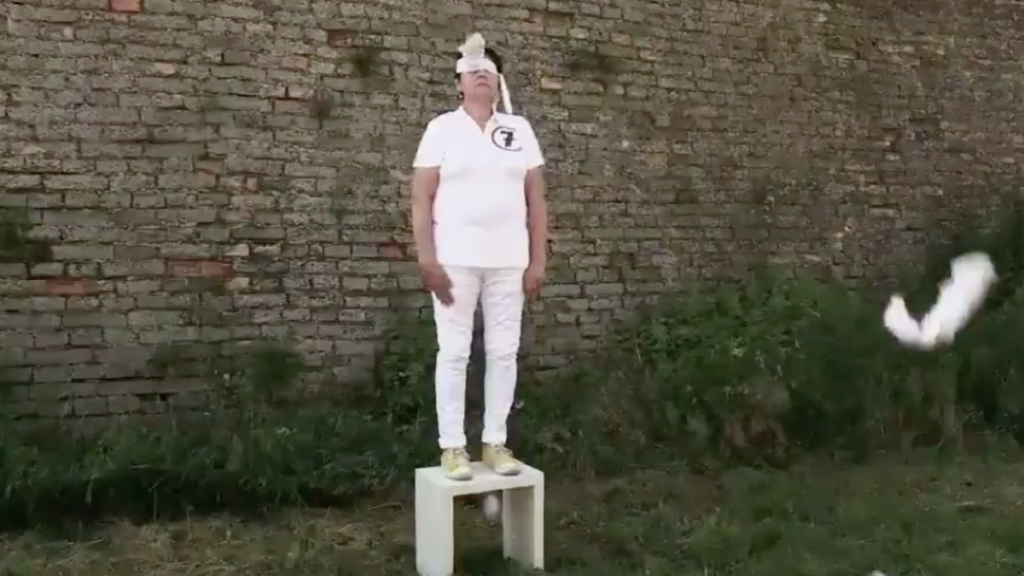When more than 200 academicians, university professors, scientific researchers, writers and journalists objected to the proposed draft laws on same-sex unions, gender equality and prohibition of discrimination, claiming they are unconstitutional, Minister Gordana Čomić replied that “there is a group of people who want the LGBT community to be unhappy”, while she, on the contrary, believes that the proposed law on same-sex unions will “make many people less unhappy”, because “now you have people who are unhappy because they can’t exercise their human rights.” In a word, Minister Čomić thinks that the goal of the state is to make its citizens happy or, more precisely, less unhappy, which is more or less the same thing.
Such an understanding of the goal of the state shows that this long-term functionary of a party with an essentially liberal platform – the Democratic Party – nurtures political beliefs that are much closer to Vladimir Ilyich Lenin than John Locke. Namely, a government that wants to encourage happiness among its people is always totalitarian in nature, because only unlimited power can penetrate into the inner human life with which the issue of human happiness is closely connected. Therefore, the notion of happiness was unavoidable in the rhetoric of all totalitarian regimes. Didn’t the communists justify the revolutionary terror over the lives, freedom and property of their class enemies by claiming that they are fighting for a happy future? In contrast, the classical liberal thought, starting from Locke’s idea of limited government, believes that the goal of the state is not to ensure the happiness of citizens, but rather the external security of the individual, i.e. the freedom of his person and his property. At the same time, in a modern state, real freedom lives only in constitutional paragraphs, which are its sole guarantee.
Reflecting on what form of despotism might occur under democratic regimes, Alexis de Tocqueville concluded in the mid-19th century that democratic despotism could resemble an “immense and tutelary power” that rises above the people and “takes upon itself to secure their gratifications and to watch over their fate”. In addition, “for their happiness such a government willingly labors, but it chooses to be the sole agent and the only arbiter of that happiness.” Judging by Minister Čomić’s reply to the signatories of Petition 212, her “democratic” ideal is precisely such a government that wants to “make people happy”. At the same time, the fact that, in the name of the happiness of the LGBT population, this Minister of Human and Minority Rights completely ignores the unambiguous provisions of Article 62, paragraph 2 of the Constitution of the Republic of Serbia, according to which “marriage is concluded on the basis of a freely given consent of a man and a woman”, only shows that she champions the same revolutionary attitude towards law as Josip Broz Tito, who said that “one should not stick to law like a barnacle.” As with any admirer of revolutionary totalitarianism, Minister Čomić also thinks that the Constitution is merely a tool in the service of the ideology of human rights. In her boundless and meaningless attempts to interpret the Constitution (e.g., by saying: “People are not territories, all people are human beings, and this law enables both women and men and members of same-sex unions to live according to the human rights enshrined in the Constitution of Serbia”), she fails to mention any specific constitutional provision, thus demonstrating that her words arise not only from the malicious intention to hide the obvious unconstitutionality of the draft law on same-sex unions, but also from the revolutionary Machiavellian belief that the constitution is worth only as much as it is in the service of the neoliberal “human rights” ideology. More precisely, the constitutional provision must not be a “formal” obstacle on the path to happiness of LGBT persons. The fact that, once the Constitution is violated, the freedom, lives and property of all of us are left without guarantees is of no interest to comrade Čomić, just as comrades Lenin and Broz could not have cared less either.
In contrast to comrade Čomić stand those who have signed the Petition of the Coalition for the Natural Family, and who, not only with the content of the Petition, but above all with their refusal to participate in the “dialogue” on unconstitutional drafts, openly stand before the eyes of the Serbian public as defenders of the Constitution of the Republic of Serbia, i.e. its Article 62 which regulates the institution of marriage. The defense of the Constitution is the same as the defense of the Fatherland. Therefore, the matter is simple when it comes to the outcome of this whole problem. In order for the Fatherland to not capitulate, comrade Čomić must do so. This can be best achieved by the Government revoking the proposed unconstitutional drafts of these three laws, and the Minister delivering her letter of resignation. That would be the least costly for everyone. If the Government, under external pressure, decides to protect the Minister, then all the anger of the vast majority of Serbian citizens will rightfully be directed towards the Progressives and President Vučić. Thus, the further fate of the three unconstitutional draft laws will actually be an indicator of whether in Serbia of today, as in the time of Milošević, the rift between society and the state is indeed irreconcilably widening.
